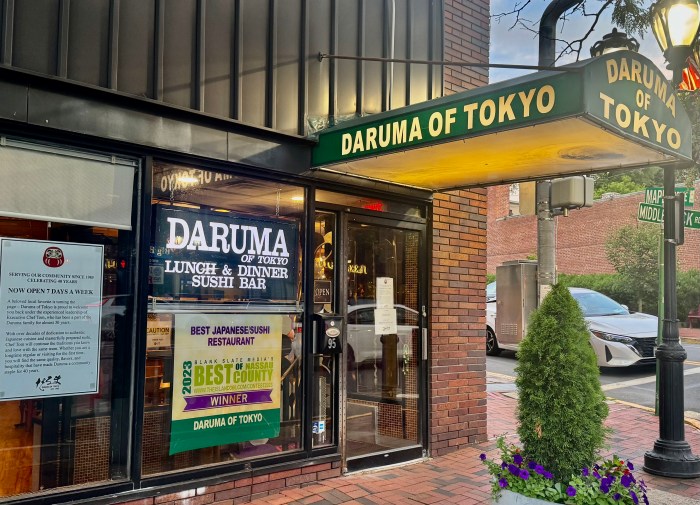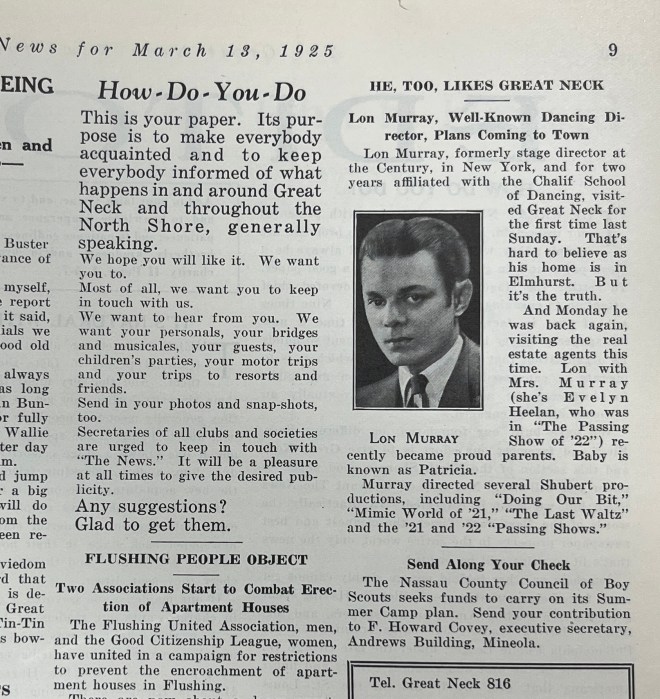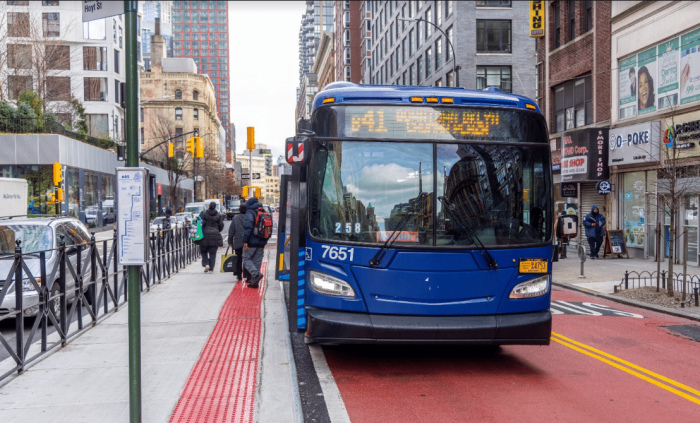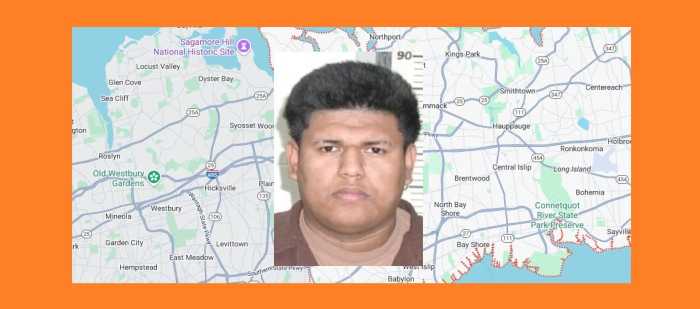
Less than a month ago, the subject of trees was not a major concern among residents of the Village of Great Neck.
But that feeling has changed, officially, with a proposal by the village’s board of trustees to alter the requirements needed to obtain a tree removal permit.
The falling of a large tree on the Epstein house on Wooleys Lane East that almost killed a sleeping 20-year-old college student on July 27 has caused a dramatic refocusing on trees in a village that is still suffering from the loss of so many trees from the microburst of 2010, Hurricane Sandy and other recent severe weather events.
Last week’s public hearing at village hall was called for by Mayor Pedram Bral and his board to gauge reaction to their proposal and served as further evidence of the serious concerns now present.
Almost 15 speakers spoke at the hearing. Perhaps the most emotional and affecting speaker was Geoffrey Epstein, who stood alongside his wife Rachel, and spoke about the incident involving his daughter, Stephanie.
“What I witnessed, no parent should ever witness,” he said. “If this incident hadn’t happened to me and my wife and my family, I probably wouldn’t be here tonight and, obviously, this issue wouldn’t be on the table.”
After almost an hour and with no vote taken to enact the law, the mayor adjourned the hearing, promising to continue listening to residents again on Sept. 8.
There is currently a five-step process taken by the building inspector when considering the granting of a tree removal permit. Removing a tree without a permit can carry a fine of $1,000.
The second criteria, deciding whether there is a “necessity” to remove or prune a tree, is the only part of the requirements the board wants to alter, removing the word “necessity,” replacing it with “appropriateness” and following it, in part, with the phrase “minimize the concern of citizens regarding their safety.”
Epstein, while stating that he was not in favor of passing any law that would be detrimental to the community, was in favor of making some kind of change to the existing legislation.
“If there is any resident who should feel for whatever reason that a tree or more than one tree is potentially unsafe on their property (or on an adjoining property), they should definitely have the right to have that tree examined and/or removed,” he said.
“I want to maintain the beauty of Great Neck, but we have to keep the safety of our residents as the number one priority. My daughter missed being killed not by a foot, but by an inch. The tree landed on her, period.”
Earlier in the meeting, Mayor Bral gave an explanation as to his board’s intent. “What we’re trying to do is to make a slight change in the wording of the law,” he explained. “The (new) law is not to allow people to cut whatever they want whenever they want. It has to be appropriate . . . This law is not going to allow people to cut a tree that is a viable tree, that an arborist says is a healthy tree.”
Many speakers were upset with the proposed new law’s change in wording. Resident Norman Gersman was critical, saying, “The word ‘necessity’ is absolutely correct (in the present law). You’re making something that is firm into something that is vague.”
Amy Glass, troubled over the use of the word “concern,” stated, ”You’re reacting to people’s fears right now. Of course we’re all upset about that tree that fell. We can’t react out of fear.”
“I’ve read a lot of law,” said Rebecca Rosenblatt Gilliar, referring the wording in the proposal also, “but I’ve never seen the word ‘appropriate.’ It’s so loose. It’s so easy to play with.”
Some residents warned that the use of the word would leave the village open to numerous lawsuits. “It could be used to justify anything,” said Elizabeth Allen about the word.
Dan Capruso added, ”What you’re doing here is removing the word ‘necessity’ and replacing it with ‘fear.’”
Capruso contributed another concern regarding what could happen if the new law resulted in many trees being taken down.
“The problem is that as you cut down trees, you’re going to increase the wind load on the remaining large trees,” he explained. “So I think this law could have the opposite effect and make it more dangerous because you’re increasing wind load on the trees that remain.”































